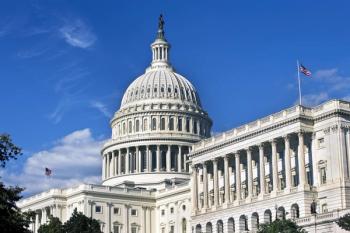Joseph L. Fink III, BSPharm, JD, DSC (Hon), FAPHA
Articles by Joseph L. Fink III, BSPharm, JD, DSC (Hon), FAPHA

When a pharmacist and a pharmacy assistant are indicted on charges of defrauding a government health insurance program and make motions with the relevant federal court to overturn the charges, should they prevail, heading off a trial, or should the matter proceed to trial?

In an attempt to limit requirements of the "Fail-First" policy, advocacy groups target additional jurisdictions.

Case points out the importance of being circumspect while talking about social media postings at the pharmacy.

Genetic Information Nondiscrimination Act of 2008 helps protect individuals from discrimination by employers and health insurance companies.

Some states are considering and enacting legislation for programs aligning patients’ refill schedules.

What is the responsibility of pharmacy staff who filled numerous prescriptions for a teenager who died of multiple drug toxicity?

Laws allowing the importation of wholesale prescription medications provide cost savings to patients but require HHS approval.

Can the judge add to their penalty of imprisonment a substantial monetary fine to recover ill-gotten gains from drug diversion?

At issue in a lawsuit after a patient’s spouse took home and administered another person’s medications is whether there is a basis for punitive damages.

The childhood cancer survivorship, treatment, access, and research (STAR) legislation means pharmacists must be up-to-date on the latest chemotherapy regimens.

Court upholds decision that a licensed intern who pled guilty abused the public’s trust and deserved a stiffer sentence.

The Creating and Restoring Equal Access to Equivalent Samples Act of 2017 aims to expedite the entry of lower-cost biosimilars and generics into the market.

One maintains that her reputation was damaged because the pharmacy chain reported her termination to the state board.

The Protecting Patient Access to Emergency Medications Act of 2017 Spells Out Appropriate Dispensing Procedures.

A physician filed a lawsuit against a national pharmacy chain, claiming that some comments made by pharmacists practicing there to his patients had been defamatory.

In summer 2016, Pharmacy Times® published an article titled “‘Right to Try’ Legislation: A Developing Legal Issue Related to Medications” that discussed the basics of a popular health policy issue.

More pharmacists are pushing for prescriptive power, leading to the enactment of new legislation in several states.

Imagine a patient walking into your pharmacy with a new prescription from a physician appointment that day. After the technicians process the prescription and the pharmacist has reviewed everything, the patient is ready to be checked out.

When a trial court judge rules that a claim of negligence against a pharmacy should be dismissed and the plaintiffs appeal, what will the state’s highest court decide is the appropriate outcome?

Telehealth has become a viable niche in US health care because it lets patients and providers use technology to seek medical advice and diagnose and treat illnesses.

A pharmacist receives a fraudulent prescription for a controlled substance. A police officer asks the pharmacist to dispense the drug, so the offender can be arrested. Does honoring the prescription justify firing the pharmacist? Can the pharmacist recover damages under the state’s whistle-blower law?

When an insurer requires prior authorization (PA) from a prescriber to cover the expense of a medication and the patient allegedly is told that the pharmacist would contact the prescriber to pursue that but the communication fails and the patient dies, what is the liability of the pharmacy?


With the authority of the FDA limited by statute to removing supplements from the market only after reports of adverse effects, the role of pharmacists to intervene and assist patients with optimal product selection is vital.

Can a salesclerk working in a head shop be convicted of a criminal violation of the Federal Food, Drug, and Cosmetic Act for selling misbranded synthetic drugs?

When pharmacy technicians employed at several locations of a national pharmacy chain make derogatory comments about a local physician, are those comments to be viewed as defamation or as speech protected by a “qualified privilege?”

Proposed federal legislation aims to achieve better health outcomes by giving patients with diabetes the freedom to decide which testing supplies work best for them.

When a patient alleged that he met the qualifications for coverage under the Americans with Disabilities Act and filed a lawsuit in federal court challenging lack of accessibility at a local pharmacy, would he prevail?

Pharmacy is a service profession in which we have the utmost responsibility to improve outcomes, lower cost, and improve the quality of life for patients with all types of health conditions.

A variety of chronic illnesses can be treated with medications such as biologics.























